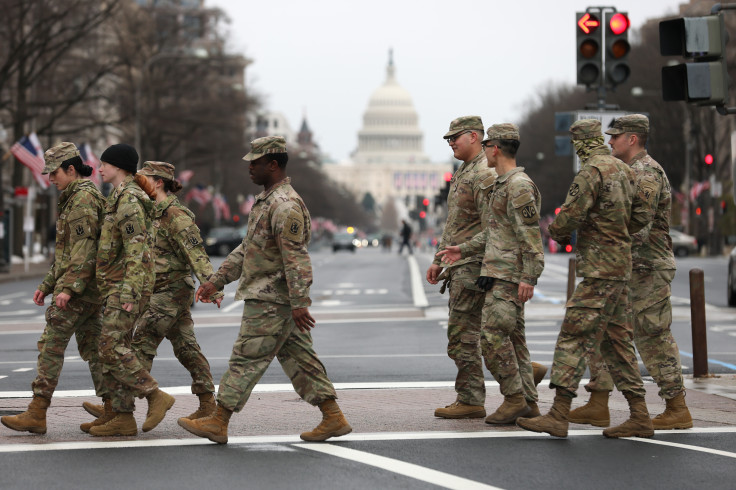
The Pentagon's expected deployment of as many as 1,500 active duty troops to aid with securing the southern border in the coming days will likely be followed by further action, according to a U.S. Army Special Forces veteran.
Even though law prohibits troops from enforcement duties under the Posse Comitatus Act, President Donald Trump has directed through executive order that the incoming secretary of defense and homeland security chief report back within 90 days if they think an 1807 law called the Insurrection Act should be invoked. Such law would allow those troops to be used in civilian law enforcement on U.S. soil.
Eric Brown, a 25-year U.S. Army Special Forces veteran, discussed with The Latin Times the logistical implications of the measure, historic precedents in U.S. history and what further measures we could expect from the Trump administration at the southern border.
The Latin Times: What do you make of the announcement of as many as 1,500 active duty troops being deployed to secure the southern border?
Eric Brown: I see the deployment of thousands of additional active duty US troops to the southern border as an escalation that fits the administration's stance on border security.
The Latin Times: Are there any legal precedents for this?
Eric Brown: Historically, the US has used federal troops on the border in rare circumstances like when President Woodrow Wilson ordered forces to pursue Pancho Villa in 1916. More recently, presidents have sent National Guard units to assist with enforcement, but placing active duty forces signals a higher level of involvement.
The Latin Times: How do you envision this issue escalating?
Eric Brown: I expect further actions from the administration may include tighter cooperation with the Department of Homeland Security and wider use of surveillance or technology. This buildup suggests a belief that the border requires a heavier military presence than we've seen in decades. As a former Special Forces member, I know these troops will follow orders while operating under clear legal guidelines. However, the presence of uniformed military on US soil remains controversial. Only time will tell how the public and Congress respond to continued deployments.
The Latin Times: You mention "wider use of surveillance or technology." Can you elaborate on that idea?
Eric Brown: When I say "wider use of surveillance or technology," I'm picturing more unmanned aerial systems (drones) for continuous monitoring, sensor arrays that track movement near crossing points, and advanced imaging tools, like thermal cameras. We might also see integrated data-sharing platforms that link federal agencies and local law enforcement, allowing them to spot illegal crossings or contraband in real time. This expanded surveillance network could involve ground-based radar, facial recognition at busy checkpoints, and automated systems that flag suspicious patterns of activity.
The Latin Times: Finally, considering this is a border shared with Mexico, how much do you think things would have to escalate for Mexico to worry?
Eric Brown: Mexico would likely view any movement of uniformed U.S. forces across the border without clear permission as a major escalation. If the United States deployed active duty or Special Forces units directly into Mexican territory—whether by accident or by "hot pursuit"—that would raise sovereignty concerns and could spark a diplomatic dispute. Even increasing the number of troops and heavy equipment on the U.S. side, right at key border points, could look like an overt military posture. From Mexico's perspective, this might signal a willingness to bypass diplomatic channels in favor of direct military action.
© 2025 Latin Times. All rights reserved. Do not reproduce without permission.





